Azelaic acid is a type of acid that is gaining popularity in the world of skincare. Azelaic acid is a naturally occurring substance found in grains such as wheat and rye that is used in skincare to treat skin pigmentation and acne. It is a multifunctional ingredient that can benefit a variety of skin types and conditions. Here are some ways that azelaic acid might just change your skincare game:
-
Azelaic acid has been shown to be effective in treating acne. It has antimicrobial properties that can help to kill the bacteria that cause acne. It also has anti-inflammatory properties that can help to reduce redness and swelling associated with acne.
-
Azelaic acid can help to lighten hyperpigmentation caused by acne, sun damage, or other factors. It works by inhibiting the production of melanin, which is responsible for skin pigmentation.
-
Azelaic acid has been shown to be effective in treating rosacea. It can help to reduce the redness and inflammation associated with this condition.
-
Azelaic acid is a gentle exfoliant that can help to remove dead skin cells from the surface of the skin. This can help to improve the texture of the skin and make it look smoother and more radiant.
-
Azelaic acid has been shown to have anti-aging benefits. It can help to stimulate collagen production, which can help to reduce the appearance of fine lines and wrinkles.
Overall, azelaic acid is a versatile ingredient that can benefit a variety of skin types and conditions. If you are interested in incorporating azelaic acid into your skincare routine, it is best to start with a low concentration product and gradually increase the strength as your skin becomes accustomed to it.
What is Azelaic Acid?
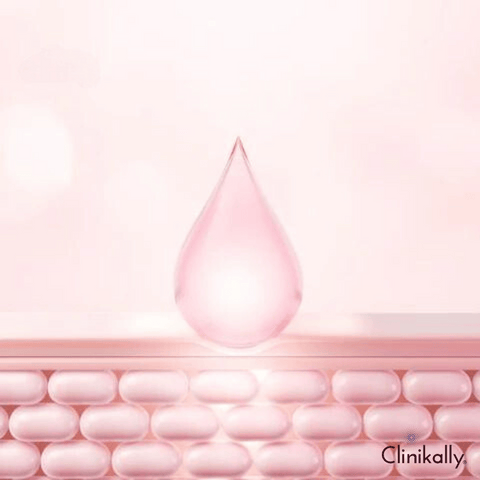
Azelaic acid is an organic acid that occurs naturally in wheat, rye, and barley. It is also produced by yeast, which lives naturally on human skin. Because of its numerous skin benefits, azelaic acid is used as an active ingredient in topical skincare products in the skincare industry. It has anti-inflammatory and antimicrobial properties, making it an effective acne and rosacea treatment. It can also help to reduce hyperpigmentation and improve skin texture by gently exfoliating the skin. Additionally, azelaic acid has been found to have anti-aging benefits, as it can stimulate collagen production in the skin. Azelaic acid is generally well-tolerated by most skin types and can be used by individuals with sensitive skin.
How Does Azelaic Acid Work?
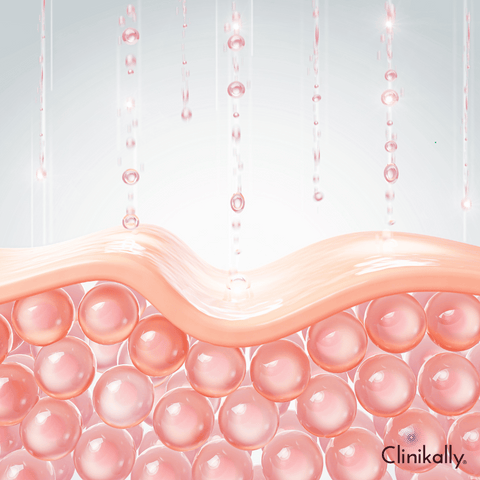
The acid is both antibacterial and anti-inflammatory. It is also an antioxidant that can counteract or neutralize the effects of free radicals. These are substances in your body that can cause skin inflammation and acne. Azelaic acid can reduce inflammation by neutralizing free radicals.
Acne is caused in part by abnormally shed skin cells. Pimples are caused by the accumulation of dead cells. Azelaic acid can help reduce build-up by slowing down skin protein production. Azelaic acid can disrupt the link between testosterone and the body's oil production. This can be useful for a teenager going through puberty when hormonal changes cause acne. When you expose your skin to sunlight, certain skin cells produce pigment. This pigment may appear on your skin as dark patches known as hyperpigmentation. Azelaic acid can inhibit the process and prevent dark patches from appearing.
Overall, azelaic acid is a versatile ingredient that works to improve various skin conditions by regulating the production of keratin, reducing the growth of bacteria, and having an exfoliating and brightening effect on the skin.
What Skin Issues Does Azelaic Acid Treat?
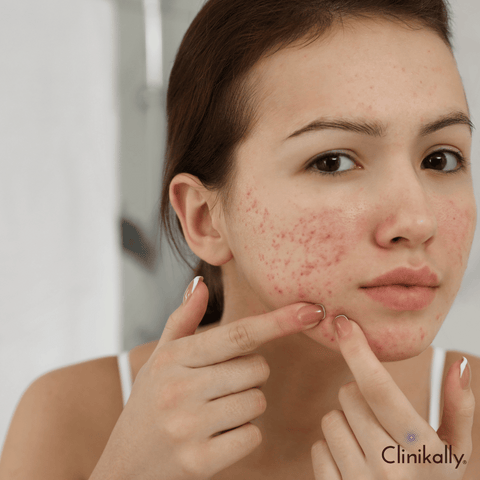
Azelaic acid is a versatile skincare ingredient that can help treat a variety of skin issues, including:
-
Acne: Azelaic acid is effective in treating acne because it helps to regulate the production of keratin, which can clog pores and contribute to the development of acne. It also has antimicrobial properties that can help to reduce the growth of bacteria on the skin.
-
Rosacea: Azelaic acid has been found to be effective in reducing the redness and inflammation associated with rosacea. It works by reducing the production of inflammatory cytokines, which are molecules that contribute to inflammation.
-
Hyperpigmentation: Azelaic acid can help to reduce the appearance of hyperpigmentation caused by acne, sun damage, or other factors. It works by inhibiting the production of melanin, which is responsible for skin pigmentation.
-
Uneven skin tone and texture: Azelaic acid has a mild exfoliating effect on the skin, which can help to improve skin texture and make it look smoother and more radiant.
-
Anti-aging: Azelaic acid has been found to have anti-aging benefits because it can stimulate collagen production in the skin, which can help to reduce the appearance of fine lines and wrinkles.
Overall, azelaic acid is a versatile skincare ingredient that can help to improve a variety of skin issues. It is generally well-tolerated by most skin types and can be used by individuals with sensitive skin.
Acne Treatment: How Azelaic Acid Can Help Clear Your Skin
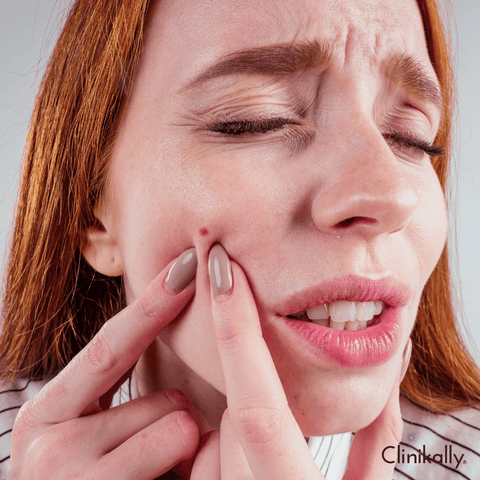
Azelaic acid is a multifunctional ingredient that can be a useful addition to your acne treatment routine. Here are some ways azelaic acid can help clear your skin:
-
Azelaic acid has anti-inflammatory properties that can help to reduce the redness and swelling associated with acne. It works by inhibiting the production of inflammatory cytokines, which are molecules that contribute to inflammation.
-
Azelaic acid has antimicrobial properties that can help to kill the bacteria that cause acne. Reducing the number of bacteria on the skin, it can help to prevent new acne from forming.
-
Azelaic acid has a mild exfoliating effect on the skin. It can help to remove dead skin cells from the surface of the skin, which can clog pores and contribute to the development of acne. By gently exfoliating the skin, azelaic acid can help to prevent new acne from forming.
-
Azelaic acid can help to reduce the appearance of hyperpigmentation caused by acne. It works by inhibiting the production of melanin, which is responsible for skin pigmentation.
-
Azelaic acid can help to improve the overall texture of the skin. By gently exfoliating the skin and reducing inflammation, it can make the skin look smoother and more radiant.
Overall, azelaic acid is a versatile ingredient that can benefit individuals with acne-prone skin. It is generally well-tolerated by most skin types and can be used in conjunction with other acne treatments. If you are interested in incorporating azelaic acid into your skincare routine, it is best to start with a low-concentration product and gradually increase the strength as your skin becomes accustomed to it.
Skin Brightening: The Benefits of Azelaic Acid for Hyperpigmentation
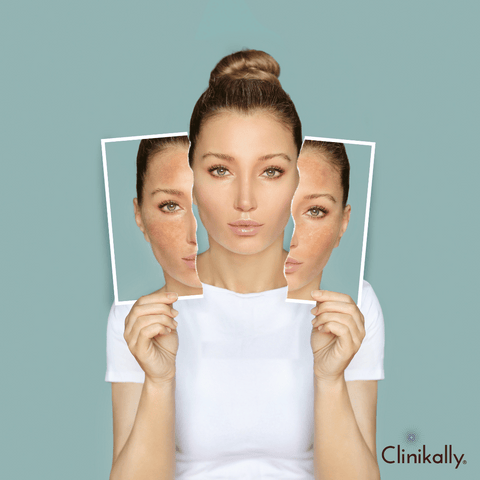
Hyperpigmentation is a common skin concern that occurs when patches of skin become darker than the surrounding areas due to an overproduction of melanin. Azelaic acid is a versatile skincare ingredient that can help to reduce the appearance of hyperpigmentation in several ways:
-
Azelaic acid can help to inhibit the production of melanin, which is responsible for skin pigmentation. By slowing down the production of melanin, it can reduce the appearance of hyperpigmentation caused by acne, sun damage, or other factors.
-
Azelaic acid has a mild exfoliating effect on the skin. It helps to remove dead skin cells from the surface of the skin, which can clog pores and contribute to the development of hyperpigmentation. By gently exfoliating the skin, azelaic acid can help to promote a more even skin tone and reduce the appearance of dark spots.
-
Azelaic acid has anti-inflammatory properties that can help to reduce inflammation in the skin. Inflammation can contribute to hyperpigmentation, so by reducing inflammation, azelaic acid can help to prevent new hyperpigmentation from forming.
-
Azelaic acid can help to improve the overall texture of the skin. By gently exfoliating the skin and reducing inflammation, it can make the skin look smoother and more radiant, which can help to reduce the appearance of hyperpigmentation.
Overall, azelaic acid is a versatile skincare ingredient that can benefit individuals with hyperpigmentation. It is generally well-tolerated by most skin types and can be used in conjunction with other brightening agents such as vitamin C or niacinamide. If you are interested in incorporating azelaic acid into your skincare routine, it is best to start with a low-concentration product and gradually increase the strength as your skin becomes accustomed to it.
Acne Scars and Dark Spots: How Azelaic Acid Can Improve Your Skin Texture
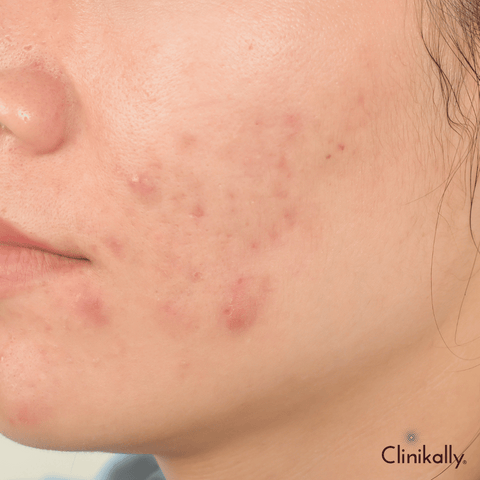
Acne scars and dark spots are common concerns for many individuals, and azelaic acid can be a helpful ingredient to improve the texture of the skin affected by them. Here are some ways that azelaic acid can improve skin texture:
-
Azelaic acid has a gentle exfoliating effect on the skin that can help to remove dead skin cells from the surface of the skin. By removing these cells, it can help to unclog pores and smooth out the skin's texture.
-
Reducing inflammation: Azelaic acid has anti-inflammatory properties that can help to reduce inflammation in the skin. Inflammation can contribute to the development of acne scars and dark spots, so by reducing inflammation, azelaic acid can help to prevent further damage to the skin.
-
Promoting collagen production: Azelaic acid has been found to stimulate the production of collagen in the skin. Collagen is a protein that is essential for maintaining the skin's structure and elasticity. By promoting collagen production, azelaic acid can help to improve the appearance of acne scars and dark spots.
-
Reducing hyperpigmentation: Azelaic acid can help to reduce the appearance of hyperpigmentation caused by acne scars and dark spots. It works by inhibiting the production of melanin, which is responsible for skin pigmentation.
Overall, azelaic acid is a versatile ingredient that can benefit individuals with acne scars and dark spots. It is generally well-tolerated by most skin types and can be used in conjunction with other skincare ingredients such as retinoids and alpha hydroxy acids for maximum benefits. If you are interested in incorporating azelaic acid into your skincare routine, it is best to start with a low-concentration product and gradually increase the strength as your skin becomes accustomed to it.
Anti-Inflammatory Properties of Azelaic Acid for Rosacea

Rosacea is a chronic inflammatory skin condition that affects millions of people worldwide. It is characterized by redness, flushing, and inflammation of the skin on the face. Azelaic acid is a skincare ingredient that has been found to have anti-inflammatory properties, making it a potential treatment option for individuals with rosacea.
Here are some ways that azelaic acid can help with rosacea:
-
Azelaic acid has anti-inflammatory properties that can help to reduce inflammation in the skin. By reducing inflammation, it can help to decrease redness and flushing associated with rosacea.
-
Azelaic acid has been found to have antimicrobial properties, which means it can help to fight bacteria that can contribute to inflammation and rosacea flare-ups.
-
Normalizing skin cell growth: Azelaic acid can help to normalize the growth of skin cells, which can reduce the formation of papules and pustules associated with rosacea.
-
Improving overall skin texture: Azelaic acid can help to improve the overall texture of the skin affected by rosacea. It has a gentle exfoliating effect that can help to remove dead skin cells from the surface of the skin, promoting a smoother and more even skin texture.
Overall, azelaic acid is a promising ingredient for individuals with rosacea. It is generally well-tolerated by most skin types and can be used in conjunction with other rosacea treatments such as topical antibiotics or oral medications. If you are interested in incorporating azelaic acid into your skincare routine for rosacea, it is best to consult with a dermatologist to determine the best treatment plan for your individual needs.
Melasma: How Azelaic Acid Can Help Even Out Your Skin Tone
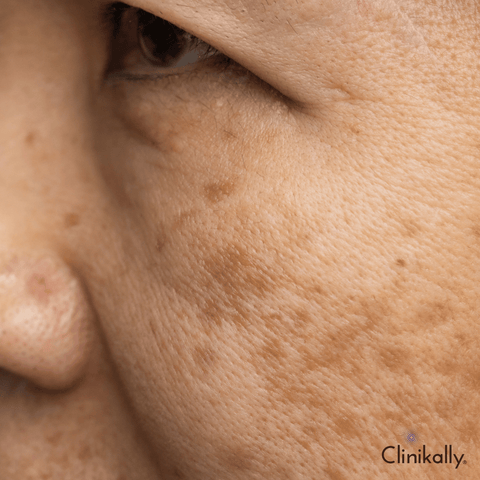
Melasma is a common skin condition characterized by dark patches of skin that typically appear on the face, particularly on the cheeks, forehead, and upper lip. Azelaic acid is a skincare ingredient that can help to even out skin tone and reduce the appearance of melasma.
Here are some ways that azelaic acid can help with melasma:
-
Azelaic acid can inhibit the production of melanin, which is responsible for skin pigmentation. By reducing the amount of melanin produced, it can help to lighten the dark patches associated with melasma.
-
Azelaic acid has a gentle exfoliating effect that can help to remove dead skin cells from the surface of the skin. By removing these cells, it can help to unclog pores and promote a more even skin tone.
-
Azelaic acid has anti-inflammatory properties that can help to reduce inflammation in the skin. Melasma is often associated with inflammation, so reducing inflammation can help to improve the appearance of melasma.
-
Azelaic acid is also an effective treatment for acne, which can sometimes contribute to the development of melasma. By treating acne, it can help to prevent further damage to the skin and reduce the risk of melasma recurrence.
Overall, azelaic acid is a versatile ingredient that can benefit individuals with melasma. It is generally well-tolerated by most skin types and can be used in conjunction with other skincare ingredients such as sunscreen and hydroquinone for maximum benefits. If you are interested in incorporating azelaic acid into your skincare routine for melasma, it is best to consult with a dermatologist to determine the best treatment plan for your individual needs.
Exfoliation and Chemical Peels: Using Azelaic Acid for a Smoother Complexion
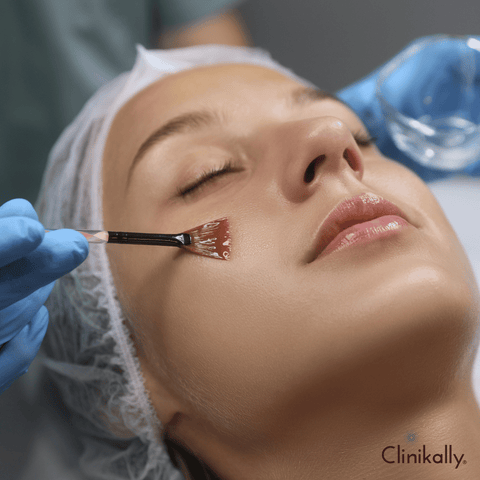
Azelaic acid is a gentle exfoliating agent that can help to improve the texture and appearance of the skin. It can be used in various skincare products, including chemical peels, to promote a smoother complexion.
Here are some ways that azelaic acid can help with exfoliation and chemical peels:
-
Removing dead skin cells: Azelaic acid has a gentle exfoliating effect that can help to remove dead skin cells from the surface of the skin. By removing these cells, it can promote a smoother and more even skin texture.
-
Reducing hyperpigmentation: Azelaic acid can help to reduce hyperpigmentation and dark spots on the skin. This can result in a more even skin tone and a brighter complexion.
-
Stimulating collagen production: Azelaic acid can help to stimulate collagen production, which is essential for maintaining healthy, youthful-looking skin. Collagen is responsible for skin elasticity and firmness, and its production declines with age.
-
Reducing acne and inflammation: Azelaic acid has antibacterial and anti-inflammatory properties that can help to reduce acne and inflammation on the skin. This can result in a smoother and clearer complexion.
When used in chemical peels, azelaic acid can help to enhance the exfoliating effects of the peel. It can also help to reduce the risk of post-inflammatory hyperpigmentation, which can occur after certain types of peels.
Overall, azelaic acid is a versatile skincare ingredient that can help to improve the texture and appearance of the skin. If you are interested in incorporating azelaic acid into your skincare routine, it is best to consult with a dermatologist to determine the best treatment plan for your individual needs.
Dermatologist Recommended: Why Azelaic Acid is a Popular Topical Treatment

Azelaic acid is a popular topical treatment recommended by dermatologists for a variety of skin concerns. Here are some reasons why it is highly recommended:
-
Effective for various skin concerns: Azelaic acid has been shown to be effective for treating acne, rosacea, hyperpigmentation, melasma, and other skin conditions. Its versatility makes it a highly recommended topical treatment by dermatologists.
-
Gentle on the skin: Unlike other topical treatments, such as retinoids, azelaic acid is generally gentle on the skin and is well-tolerated by most skin types. This makes it a good option for individuals with sensitive skin who may not be able to tolerate more aggressive treatments.
-
Safe for long-term use: Azelaic acid is safe for long-term use and does not have any known side effects. This makes it a good option for individuals who require ongoing treatment for chronic skin conditions.
-
Non-irritating: Azelaic acid is non-irritating and does not cause any stinging or burning sensations on the skin. This makes it a comfortable option for individuals who are sensitive to other topical treatments.
-
Over-the-counter availability: Azelaic acid is available over-the-counter in lower concentrations, making it easily accessible to individuals who want to try it out before seeking professional treatment.
Overall, azelaic acid is a highly recommended topical treatment by dermatologists due to its effectiveness, gentle nature, safety, and accessibility. If you are interested in incorporating azelaic acid into your skincare routine, it is best to consult with a dermatologist to determine the best treatment plan for your individual needs.
The Natural Skincare Ingredient You Need: Benefits of Azelaic Acid
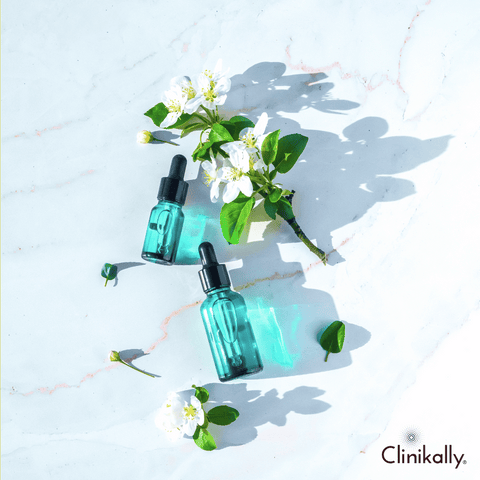
Azelaic acid is a naturally occurring skincare ingredient that offers many benefits for the skin. Here are some of the key benefits of azelaic acid:
-
Brightens and evens out skin tone: Azelaic acid has been shown to help reduce the appearance of hyperpigmentation, melasma, and other skin discoloration issues. It can help to brighten and even out the skin tone for a more radiant complexion.
-
Reduces inflammation: Azelaic acid has anti-inflammatory properties that can help to reduce redness and inflammation on the skin. This makes it a great option for individuals with sensitive or acne-prone skin.
-
Helps to unclog pores: Azelaic acid has been shown to help reduce the production of excess oil on the skin, which can help to unclog pores and prevent breakouts.
-
Promotes collagen production: Azelaic acid has been shown to stimulate the production of collagen, which can help to improve the firmness and elasticity of the skin.
-
Acts as an antioxidant: Azelaic acid has antioxidant properties that can help to protect the skin against environmental stressors such as pollution and UV radiation.
-
Safe and well-tolerated: Azelaic acid is generally well-tolerated by most skin types and does not have any known side effects. It is safe for long-term use, making it a great option for individuals who require ongoing treatment for chronic skin conditions.
Overall, azelaic acid is a natural skincare ingredient that offers many benefits for the skin. Whether you are looking to brighten and even out your skin tone, reduce inflammation and breakouts, or improve the firmness and elasticity of your skin, azelaic acid may be a great option to consider. As with any skincare product, it is always best to consult with a dermatologist to determine the best treatment plan for your individual needs.
Azelaic Acid Product Review: Which Skincare Products Should You Try?
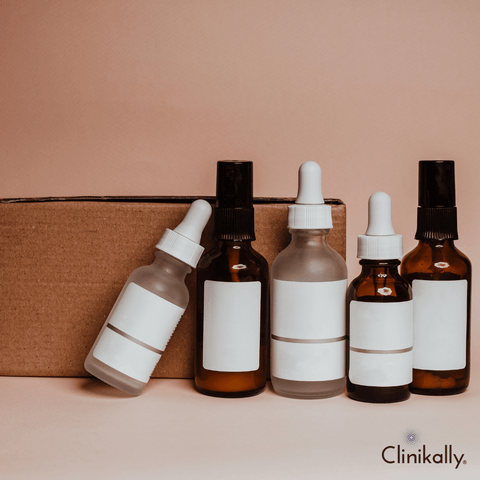
There are many skincare products that contain azelaic acid, ranging from prescription-strength treatments to over-the-counter products. Here are some popular azelaic acid products that you may want to consider trying:
-
Aziclear Serum: The advanced formulation of Aziclear Serum contains superior grade Azelaic acid, Vitamin C, and Ferulic Acid. It aids in the prevention and reduction of photodamage, hyperpigmentation, acne scarring, and signs of ageing.
-
Sesderma Azelac Moisturizing Gel: Soothe redness of skin with the first application of the potent ingredients of Sesderma Azelac Moisturizing Gel. It provides immediate comfort for rosacea or irritation of skin caused by certain cosmetic products. It has active ingredients like azelaic acid to help improve circulation, reduce pigmentation, and normalize keratinization. The moisturizing gel is designed for combination to oily skin and suitable for daily skin care.
-
DERMATICA Aze Proactive Lotion: Fight acne, acne marks, and acne scars gently and effectively with the multi-action formulation of DERMATICA Aze Proactive Lotion.
-
Xtralite Mild Cream: Xtralite Mild Cream is prescription medicine having a combination of medicines that is used to treat melasma. It provides nutrition to skin and helps to reduce skin pigmentation.
When choosing an azelaic acid product, it is important to consider your individual skin type and concerns. Some products may be better suited for acne-prone skin, while others may be better for individuals with hyperpigmentation or rosacea. It is also important to start with a lower concentration of azelaic acid and gradually work your way up, as higher concentrations can sometimes cause irritation or sensitivity. As always, it is best to consult with a dermatologist before starting any new skincare regimen or using prescription-strength products.
Azelaic Acid for Acne-Prone Skin: Tips for Incorporating it Into Your Skincare Routine
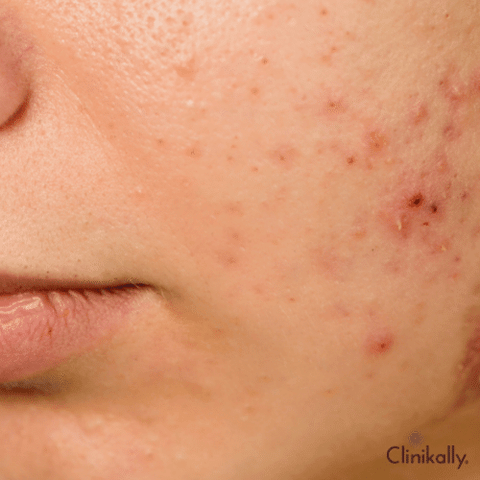
If you have acne-prone skin and are looking to incorporate azelaic acid into your skincare routine, here are some tips to keep in mind:
-
Start with a lower concentration: As with any new skincare ingredient, it is important to start with a lower concentration of azelaic acid and gradually work your way up to higher concentrations. This can help to minimize any potential irritation or sensitivity.
-
Use it consistently: For best results, it is important to use azelaic acid consistently as part of your daily skincare routine. This can help to prevent breakouts and improve the overall appearance of your skin.
-
Apply it after cleansing: To ensure that the azelaic acid is able to penetrate the skin effectively, it is best to apply it after cleansing your skin.
-
Use a moisturizer: Azelaic acid can sometimes cause dryness or flakiness, so it is important to use a moisturizer after applying it to help keep the skin hydrated.
-
Avoid using other exfoliating products: Azelaic acid has exfoliating properties of its own, so it is best to avoid using other exfoliating products such as scrubs or chemical peels while using it.
-
Consider using it in combination with other acne-fighting ingredients: Azelaic acid can be effective on its own, but it may be even more effective when used in combination with other acne-fighting ingredients such as benzoyl peroxide or salicylic acid.
As always, it is best to consult with a dermatologist before incorporating any new skincare products into your routine, especially if you have sensitive skin or are using other acne treatments.
































